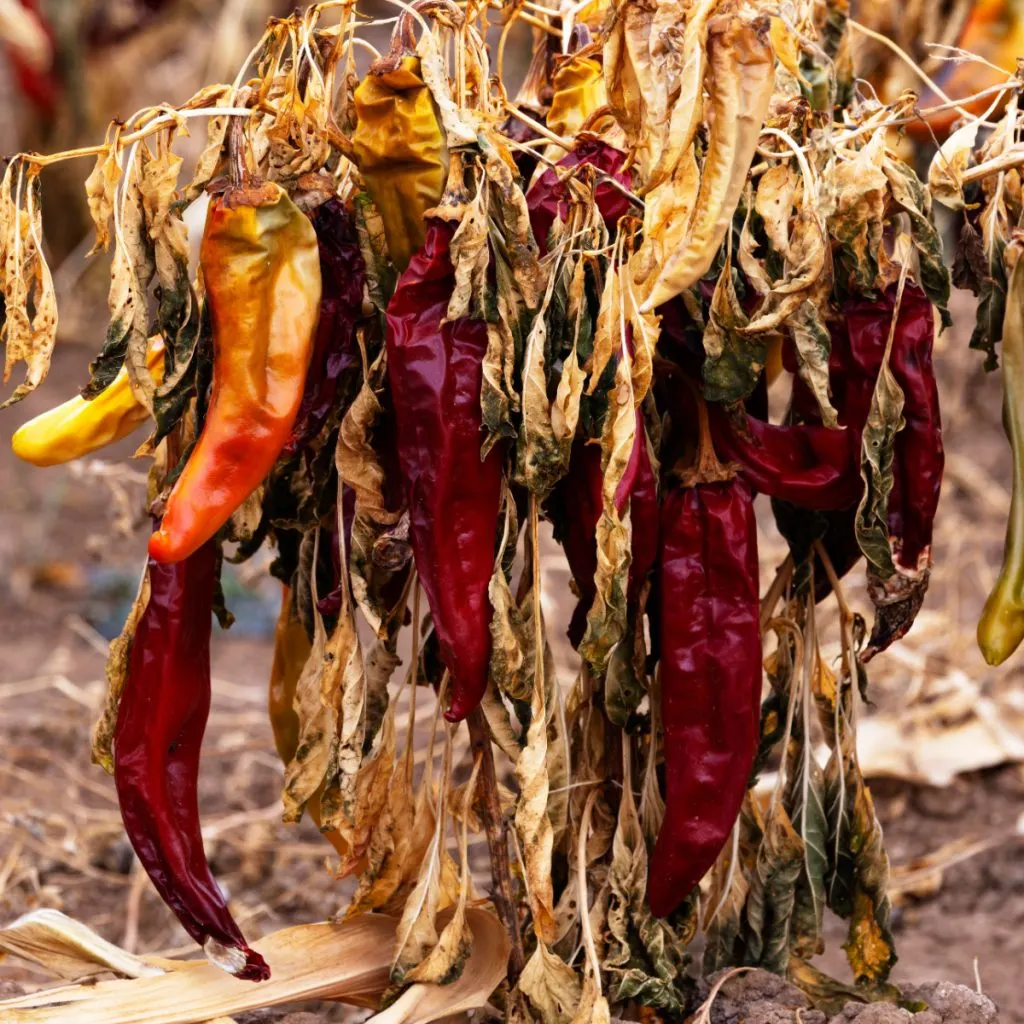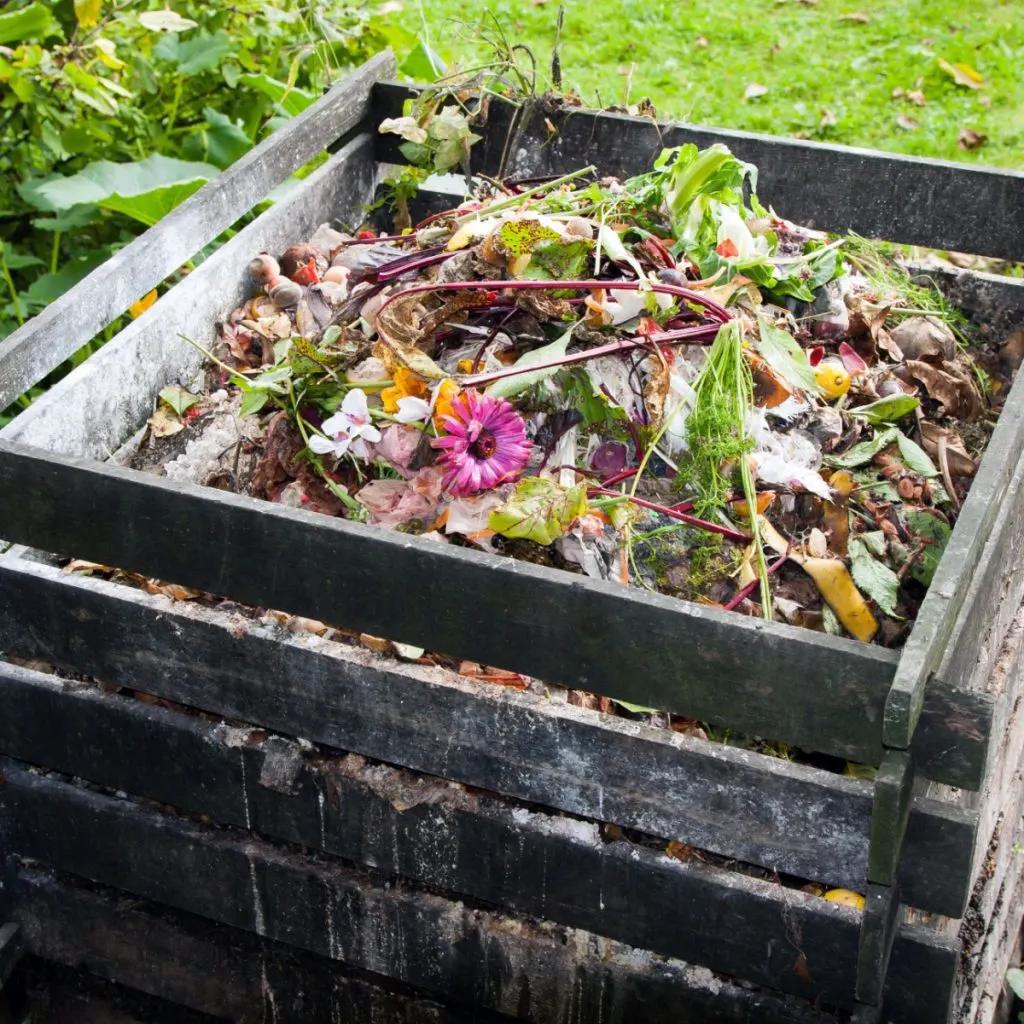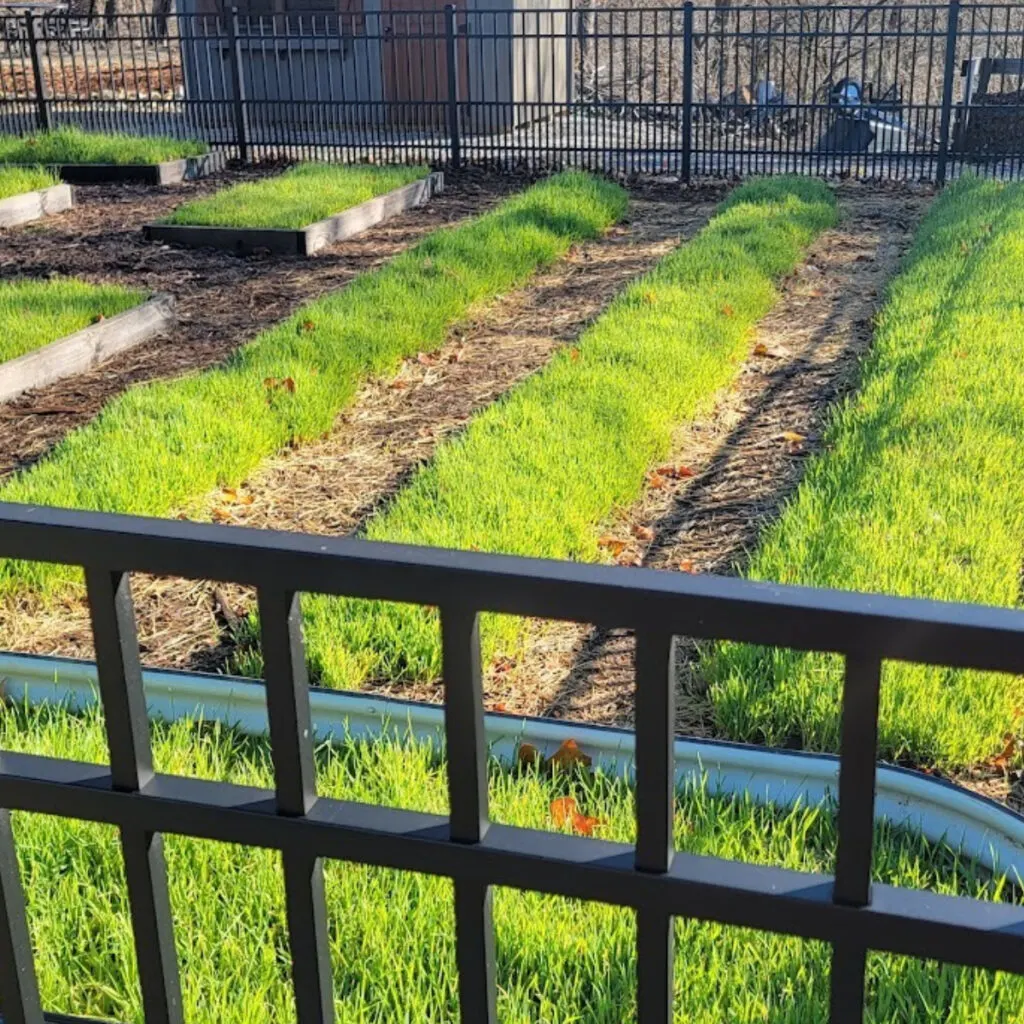One of the best things a gardener can do when the garden season comes to an end is set the stage for an even better and more productive garden next year – and the best way to do that is to make sure you take care of 5 all important, must do fall garden chores – before winter arrives!
As the fall season settles in and your vegetable plants slowly die off, all of those endless spring and summer gardening chores of planting, watering, weeding and harvesting finally come to a close. But that doesn’t mean it’s time to put those garden tools away just yet.
Fall really is one of the most important seasons for vegetable gardening. Over the years, we have watched our fall efforts in our garden pay off many times over the following spring and summer. With healthier and more power packed soil. With fewer pests. And even better, with almost zero weeds to worry about!

With that in mind, here are 5 simple tasks to perform this fall to set your growing space up for an amazingly productive and weed free garden next year!
5 Must Do Fall Garden Chores To Do Before Winter Arrives!
Make Notes Now About This Year’s Garden – 5 Must Do Fall Garden Chores
Believe it or not, one of the most important chores of all doesn’t require any physical labor at all. And that chore? Simply making notes now about this year’s garden to remember it next spring!
Why is this so important? Because no matter how good you think your memory is, it will fail you next spring. And recording it all down now with a few simple notes and/or a few photos will help you immensely at planting time next year.
Start by making a small sketch of what grew where. Even better, snap a few pictures of your garden. And while you are at it, take a few minutes to jot down what grew well and what didn’t too. All of this will help you when it comes time to plant – and to know where to plant what.
One of the best ways to keep your garden healthy and productive is to practice crop rotation. Not only does it help provide fresh nutrients to your plants, it keeps pests from setting up shop in the same space, year after year.

But if you can’t remember where you planted which vegetables, it can be hard to keep it all straight. So before you remove your plants, record your garden with a few photos and notes. It’s such an easy task to do while it’s all fresh in your mind and right in front of you.
Clear Out Your Vegetable Plants – 5 Must Do Fall Garden Chores
Whatever you do, take the time in the fall to clear all of the dying and decaying plants from your garden space. Clearing the garden of all plants, foliage and debris is one of the biggest keys of all to keeping your garden healthy next year. Unfortunately, the longer you allow old plants to stick around, the more trouble they will cause.
When plants and rotting vegetables are allowed to remain, they become a haven for pests and disease. Not only do they provide a source of food, they also help protect them through winter. And when spring rolls around, they can come back stronger than ever to attack your garden.
Even worse, those same rotting vegetables leave behind thousands of seeds. Seeds that can become a nightmare next year as they begin to grow and try to compete with your crops.
It’s always best to pull plants out as soon as they begin to fade. And even though they may be done producing food for you, as you will see in the next step, most of that garden debris can be a great addition to your fall compost pile!

Start A Fall Compost Pile – 5 Must Do Fall Garden Chores
Fall is the perfect time to start a pile with readily available leaves and garden scraps. And by starting it now or adding large amounts of materials to an existing one, you can have great compost ready to go to power your plants next year.
Simply put, compost is the powerhouse of great gardens. Compost teems with all sorts of beneficial microbes and organisms that help to create great balance and structure in the soil.
But before you add all of that plant material to your pile or when creating a new pile, make sure you chop up it all up first. Piling large plants on top in a heap will take forever to decompose. But by chopping them up (a mower works great for this task), compost can be ready by late spring.
When building or adding to your compost pile in the fall, there are a few things that you will want to keep out. We never compost our tomato and pepper plants. We have found with the ease of spreading blight and disease, those two plants are better left out.
Last but not least, make sure to add old compost or use a compost starter to get your pile going fast. Doing so will speed up your composting time, making it decompose two to three times faster. Affiliate Link: Jobe’s Organics Fast Acting Granular Fertilizer Compost Starter

Cover Your Garden Soil – Without Tilling! 5 Must Do Fall Garden Chores
There are two things you never want to do to a garden in the fall. The first is to till it before the cold of winter arrives. And the second is to leave all of your soil open and bare.
Tilling destroys soil structure and plants all of the weed seeds that have been laying on top of the soil. It actually hurts your soil and will cause more weeds and weeding chores next year.
Bare soil is an open invitation for weed seeds to find a home and lie in wait for next year. It also opens the door to have valuable garden soil whisked away by winter rains, snow and wind. Whatever you do, cover your garden soil before winter arrives – and the best way to do that is with a cover crop!
Cover crops are easy to plant, inexpensive, and the perfect way to protect your garden from fall until spring! Cover crops stop soil erosion, replenish valuable nutrients, and keep weed seeds from finding a home in bare soil too.
No Need For Tilling
Best of all, there is no need to till now to plant a cover crop, just lightly rake your soil and seed. Even more, if you plant a no till cover crop, there is no need to till in the spring either. See: How & Why To Plant A Fall Cover Crop In Your Garden – Stop Weeds & Energize Your Soil!
If cover crops are not an option, at the very least cover the soil with leaves or straw. Keeping your garden soil covered really is the key to keeping weeds out!
By covering the soil with organic material, you eliminate the opportunity for weeds to find a home in your garden. Weeds that will be competing for nutrients come next spring and summer. Using a thick, 6-inch layer of mulch is the perfect way to do just that.
Clean & Disinfect Tools Trellises And Supports – Must Do Fall Garden Chores
Last but not least – clean off all of your tools, trellises, cages, and stakes! This is one chore that gardeners rarely think about, but it really can make a difference in the health of your garden next year.
Tools and garden supports can easily carry this year’s diseases with them to next year’s plants. So before you put them away, clean them with a mild solution of water and bleach to disinfect any fungus or disease.
A simple solution of a 1/2 cup bleach with a gallon of water will do the trick. Or, you can also use sanitizer wipes as an alternative. Wipe all areas of the supports down with the solution, and rinse off with water. Let them dry in the sun, and store away. Affiliate Link: Disinfectant Wipes
Remember – a little work now can pay off huge next year. Here is to taking care of the five must do garden chores this fall, and to an amazing harvest next year! For more fall gardening tips, be sure to check out: How To Plant Fall Onions – The Best Method Ever For A Great Harvest Next Year! Happy Gardening, Jim & Mary.
Old World Garden
Jim and Mary Competti have been writing gardening, DIY and recipe articles and books for over 15 years from their 46 acre Ohio farm. The two are frequent speakers on all things gardening and love to travel in their spare time.
As always, feel free to email us at thefarm@owgarden.com with comments, questions, or to simply say hello! You can sign up for our free email list in the subscribe now box in the middle of this article. Follow us on Facebook here : OWG Facebook. This article may contain affiliate links.

